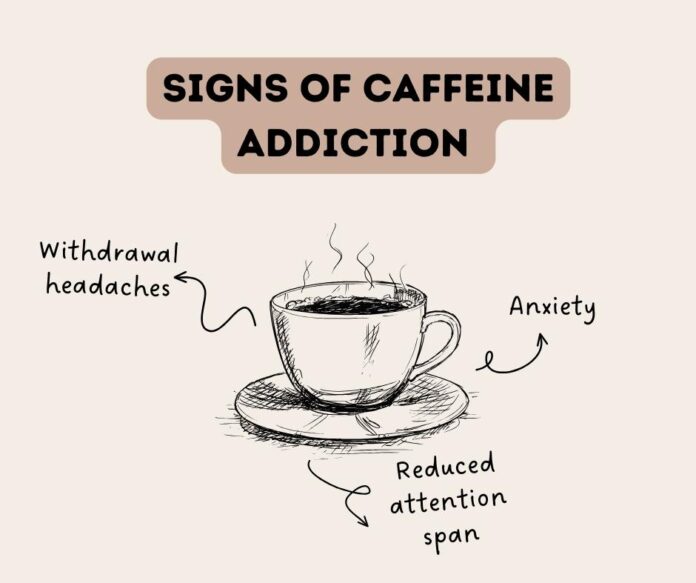Almost all college students have fallen victim to needing to get an energy drink or coffee before their first class of the day. It is a simple, relatively cheap way that wakes us up and makes us feel ready for our long lectures. While we are sipping out of a tasty drink from Starbucks, we do not even think of the long term effects that having a drink every day has on us.
Student Nick Bustamante stated, “I generally have some sort of caffeine every day, whether it be coffee or soda. I probably spend 20 dollars a week on caffeine alone.” When he was asked if he thinks caffeine can negatively affect him, he said, “Yes and no. It’s so easily acceptable, and nobody necessarily looks at it as an addiction. On the other hand, it costs me a bit of money, and caffeine withdrawal is not a fun thing.”
Another UNLV student, Tre Postelle, confirmed what Bustamante said by stating, “I do not have caffeine as much as I used to, because I would get horrible headaches when I didn’t have caffeine for a single day. I will only drink it if I am insanely drained, and even then, I will not drink it more than three days in a row.”
The most notable risks associated with drinking caffeine are restlessness, dehydration and anxiety. It also decreases your attention span and, as mentioned before, can give you killer withdrawal headaches if you have it every day. Knowing it decreases attention span, why would students drink it before going to an important lecture where they need to retain information?
People have it because it wakes them up and can put them in a better mood for the day ahead of them. Not everybody wants to attend their classes 2-5 days a week, so having a drink beforehand can give them that boost to get through something they are not in the mood to do.
While the short term effects are great, the long term effects are much scarier. Insomnia is a big one, and people can have difficulty sleeping every day they drink caffeine but also up to two months after they stop. Also, even if someone gets some sleep, it will end up being a much shorter duration than they are used to, causing them to be more tired throughout the day anyways, making caffeine an endless cycle that is extremely difficult to quit.
As mentioned earlier, caffeine does cause anxiety. This is because it heats your entire body up, makes your heart beat faster, and increases how often you breathe an hour.
90% of Americans have caffeine at least once a week, yet only 8% of them would have the actual criteria for it to be considered a true addiction. Yet, you do not need to be fully addicted to feel the side effects.
It is possible to stop a caffeine addiction gradually though. The main effects in the beginning will be those headaches, jittery feelings, and of course, insomnia. It is best to decrease your caffeine intake by half the first week, then three-fourths the second week. Afterwards, you can stop all together with minimal side effects.

